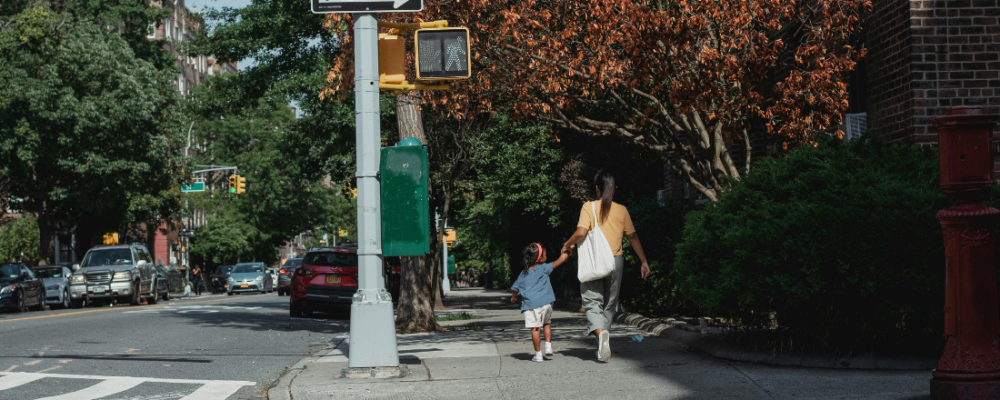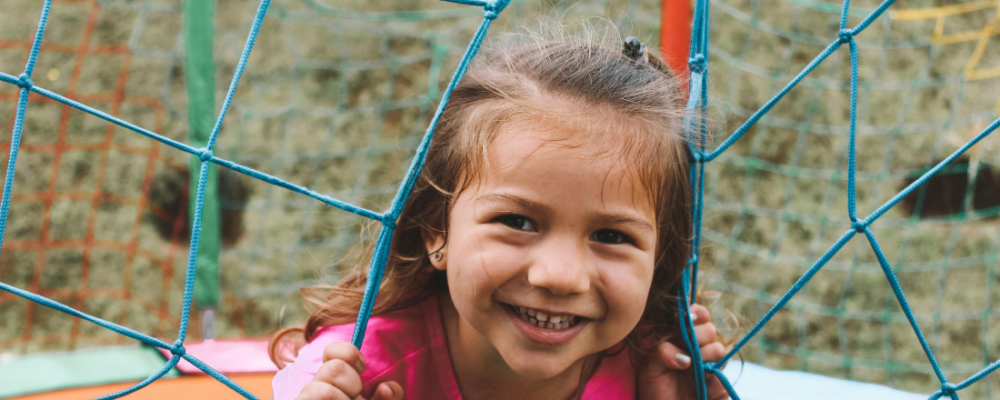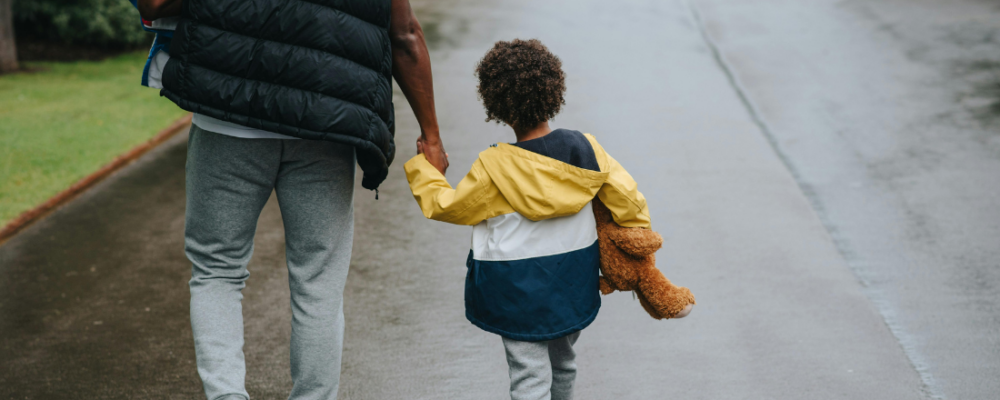
Video Series: Promising Practices for Equitable Vaccine Distribution
- Tracy Delaney, PhD, BS
- Dana Sherrod, Marley Williams
-
Focus Areas
Capacity Building & Leadership, Communicable Disease Prevention -
Programs
Public Health Alliance of Southern California -
Strategic Initiatives
COVID-19, Vaccine Access & Equity
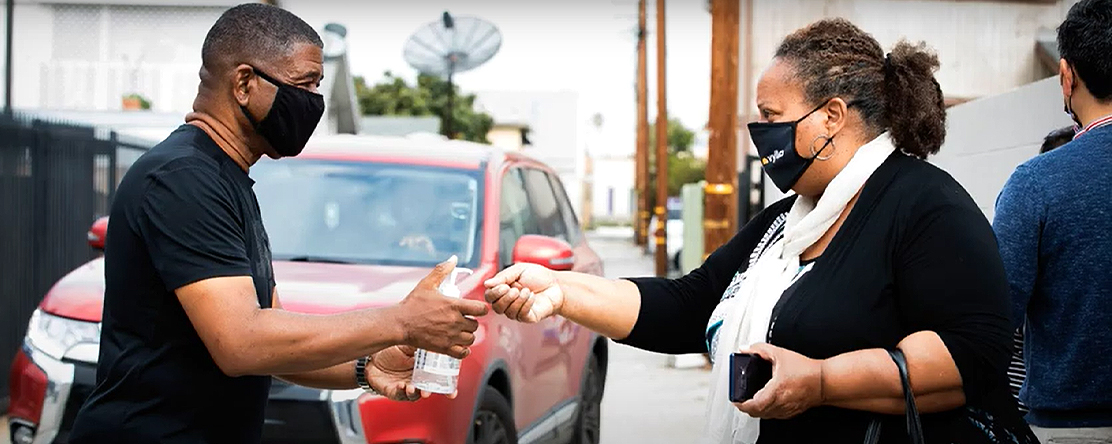
Created by PHI’s Public Health Alliance of Southern California, this video series elevates promising and replicable practices for equitable vaccine distribution. The videos showcase real-life community-informed and equity-centered practices that reach disproportionately impacted low-income communities, and communities of color.
Reaching Native Hawaiian & Pacific Islanders in Vaccine Distribution (6/17/2021)
Recognizing the longstanding challenges that NHPI communities have faced, the Utah Pacific Islander Health Coalition (UPIHC), in partnership with several local health departments, like the Utah County Health Department, and the Utah State Health Department, mobilized early to begin hosting weekly vaccination clinics focused on increasing access to vaccinations for NHPI community members in a safe, trusting, and culturally affirming way. Many of the mobile vaccination clinic efforts aimed at reaching NHPI community members in Utah are coordinated partnerships through the UPIHC member network. The mobile vaccination clinics are tailored to create a space that is culturally grounded, and feels safe and comfortable for the NHPI community, which includes partnering with faith-based partners and hosting clinics in familiar locations. The partnership efforts between Utah’s local health departments (LHDs) and UPIHC has been a leading factor behind the distribution of 1,000’s of vaccines to the NHPI community throughout the State.
Reaching Transgender Community Members in Vaccine Distribution (5/13/2021)
Improving Vaccination Accessibility for Individuals Living with Disabilities (4/16/2021)
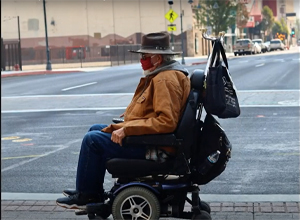 Health leaders from The Los Angeles County Department of Public Health’s (LADPH) Center for Health Equity, in partnership with key community stakeholders with lived experience and organizations that serve communities with disabilities, have developed and are working to implement a set of core recommendations to improve access to COVID-19 vaccinations for individuals living with disabilities. The recommendations developed are a recognition of the urgent need to develop processes and systems to improve accessibility for communities with disabilities throughout Los Angeles County. While the recommendations address current COVID-19 vaccination efforts, these recommendations may be applied to COVID-19 testing and broader emergency response activities. In this video, we are joined by Heather Jue Northover, LADPH Center for Health Equity Director and Hector Ochoa, Director of Public Policy for the Southern California Resource Services for Independent Living, as they discuss the importance of centering individuals with lived experience in designing vaccine distribution solutions that truly work for all.
Health leaders from The Los Angeles County Department of Public Health’s (LADPH) Center for Health Equity, in partnership with key community stakeholders with lived experience and organizations that serve communities with disabilities, have developed and are working to implement a set of core recommendations to improve access to COVID-19 vaccinations for individuals living with disabilities. The recommendations developed are a recognition of the urgent need to develop processes and systems to improve accessibility for communities with disabilities throughout Los Angeles County. While the recommendations address current COVID-19 vaccination efforts, these recommendations may be applied to COVID-19 testing and broader emergency response activities. In this video, we are joined by Heather Jue Northover, LADPH Center for Health Equity Director and Hector Ochoa, Director of Public Policy for the Southern California Resource Services for Independent Living, as they discuss the importance of centering individuals with lived experience in designing vaccine distribution solutions that truly work for all.
Read: Improving Vaccination Accessibility for Individuals Living with Disabilities
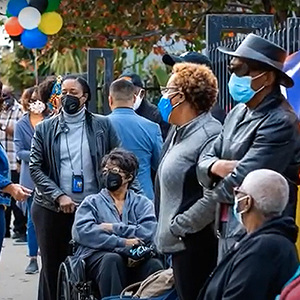 Early on in the pandemic, the City of Long Beach Health Department was acutely aware of the disparate impacts that the COVID-19 pandemic was having on low-income communities and communities of color throughout the City, especially Black, Latinx, and Cambodian communities. Moreover, early COVID-19 vaccination data revealed that the hardest-hit communities were not getting vaccinated at the same rates as less impacted communities. In an effort to ensure more equitable distribution of the COVID-19 vaccine, the City has launched a series of partnerships with community-based organizations to host mobile vaccination clinics aimed at reaching Black, Latinx and Cambodian community members.
Early on in the pandemic, the City of Long Beach Health Department was acutely aware of the disparate impacts that the COVID-19 pandemic was having on low-income communities and communities of color throughout the City, especially Black, Latinx, and Cambodian communities. Moreover, early COVID-19 vaccination data revealed that the hardest-hit communities were not getting vaccinated at the same rates as less impacted communities. In an effort to ensure more equitable distribution of the COVID-19 vaccine, the City has launched a series of partnerships with community-based organizations to host mobile vaccination clinics aimed at reaching Black, Latinx and Cambodian community members.
“Black and Well in the LBC” was a one-day mobile vaccination clinic held on Wednesday, February 10th, hosted in partnership with the City, the Long Beach Health Department, community-based non-profit Elite Skills Development and The Long Beach Minister’s Alliance. The vaccination event was held in Central Long Beach, a historically Black community, with a goal of reaching older Black Long Beach residents. The creation of this culturally affirming space, with trusted community partners in the lead, resulted in setting up vaccination appointments for 200 people, of which approximately 95% identified as Black or African American.
Originally published by Public Health Alliance of Southern California
Work With Us
You change the world. We do the rest. Explore fiscal sponsorship at PHI.
Support Us
Together, we can accelerate our response to public health’s most critical issues.
Find Employment
Begin your career at the Public Health Institute.
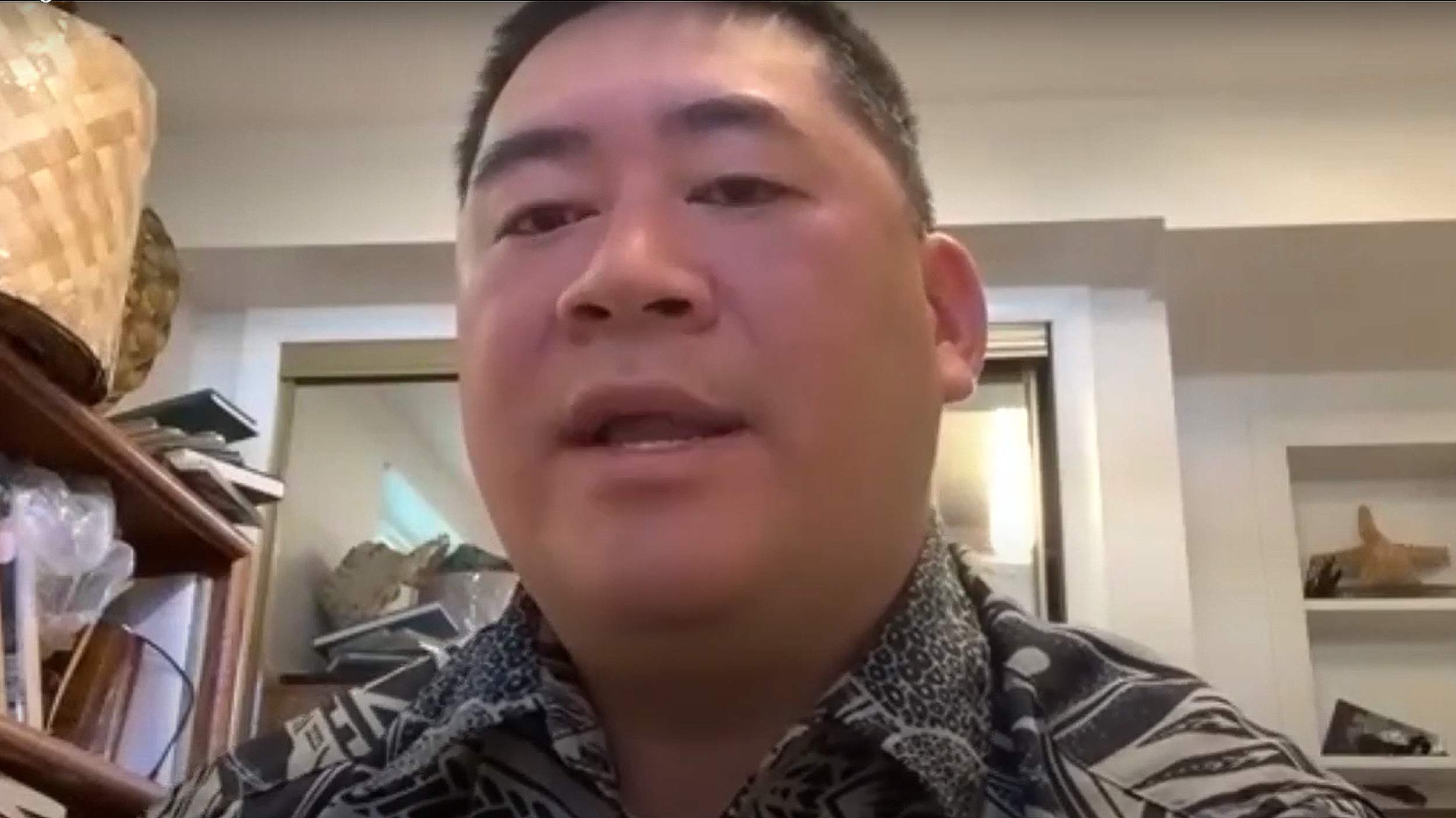
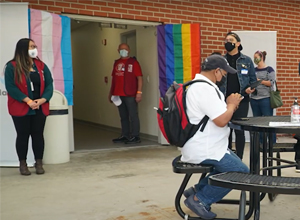
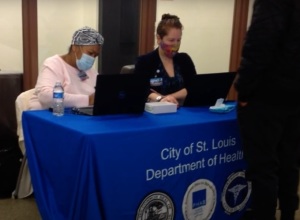 The City of St. Louis Health Department partnered with the St. Louis Housing Authority to help register hard hit communities for COVID-19 vaccination. In St. Louis, data from a January 2021 survey revealed that of 17,000 individuals who registered their interest in receiving the COVID-19 vaccine, less than 3,000 were from under-resourced and low-income neighborhoods such as North St. Louis.
The City of St. Louis Health Department partnered with the St. Louis Housing Authority to help register hard hit communities for COVID-19 vaccination. In St. Louis, data from a January 2021 survey revealed that of 17,000 individuals who registered their interest in receiving the COVID-19 vaccine, less than 3,000 were from under-resourced and low-income neighborhoods such as North St. Louis.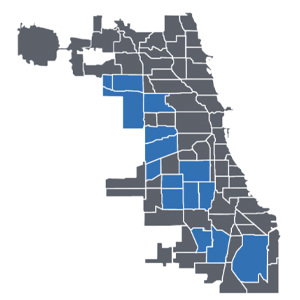
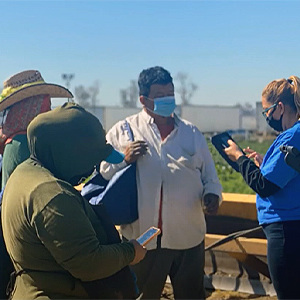 Riverside County Public Health Department, in partnership with the Coachella Valley Equity Collaborative (spearheaded by the Desert Healthcare District & Foundation (DHCD) and community-based partners, like TODEC), launched mobile vaccination clinics that brought COVID-19 vaccines directly to farmworkers in the fields.
Riverside County Public Health Department, in partnership with the Coachella Valley Equity Collaborative (spearheaded by the Desert Healthcare District & Foundation (DHCD) and community-based partners, like TODEC), launched mobile vaccination clinics that brought COVID-19 vaccines directly to farmworkers in the fields.